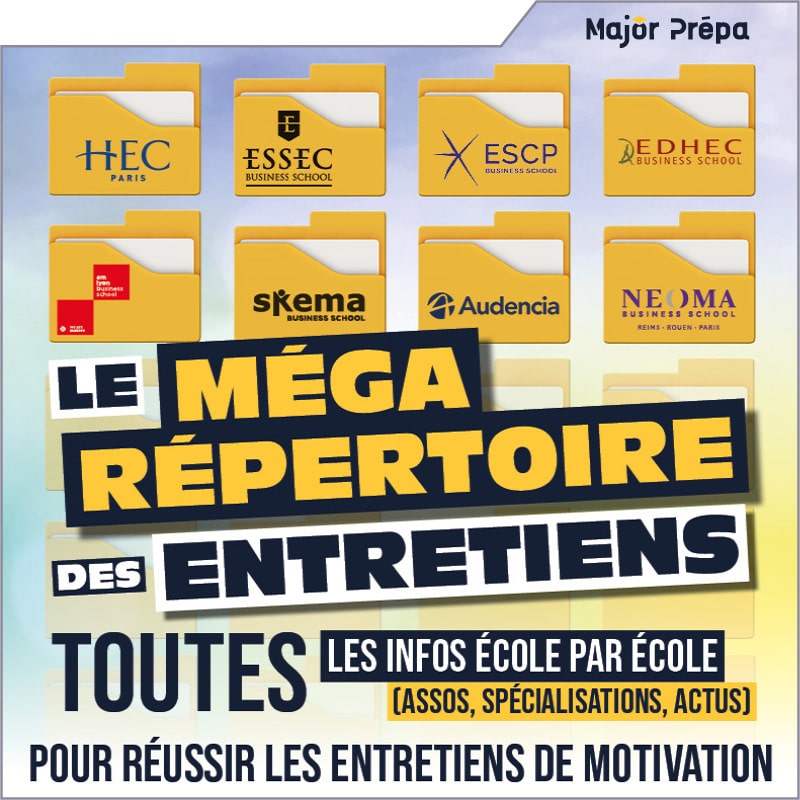L’exercice de la colle effraie tout préparationnaire, et c’est bien normal, surtout dans la langue de Shakespeare. On te propose ici quelques expressions et tournures qui peuvent t’aider à établir tes repères ! A consommer avec modération évidemment !
Accroche
History is littered with examples of … and this article is no exception.
More than ever, the issue of … has become central to …
It is often said that …, yet this article offers an unexpected perspective on the matter.
The debate surrounding … has long been contentious, and this piece adds a fresh layer to the discussion.
Far from being a mere theoretical concern, … has tangible repercussions, as evidenced in this article.
One might assume that … is a settled issue, but this article challenges that very notion.
The increasing prominence of … in today’s world makes this analysis all the more relevant.
As society evolves, so too does our understanding of …, making this discussion particularly timely.
Résumé
This article sheds a thought-provoking light on the issue of …
This article revolves around X key ideas …
This actively demonstrates that …
By carefully dissecting the topic of …, the author highlights …
Through a meticulous examination of …, this piece underscores …
The central argument of the article rests upon the premise that …
At its core, this text seeks to unravel the complexities of …
The author presents a compelling case for …, emphasizing the importance of …
Présentation des éléments du texte
At first glance, this article appears to be a mere factual report on …, but upon closer inspection …
The author structures their argument around three main pillars: …
One cannot help but notice the recurrent use of …, which suggests …
While initially appearing descriptive, the text subtly conveys …
A key feature of the article is its reliance on … to support its claims.
The organization of the argument follows a clear progression from … to …
Throughout the piece, the author employs … as a means to …
The juxtaposition of … and … serves to highlight …
Constat objectif, souligner les éléments dans le texte
The text brings to light several striking elements, such as …
What stands out in this passage is …
A significant piece of information that deserves attention is …
A closer examination of the article reveals a nuanced discussion of …
Among the many points raised, the emphasis on … is particularly noteworthy.
The article meticulously details …, reinforcing the idea that …
The use of statistics and examples in this section strengthens the claim that …
One of the most compelling aspects of the article is its exploration of …
Analyser le ton et faire ressortir les sous-entendus
-
Style
The wording used in this article is particularly telling, as it conveys …
Through a combination of rhetorical questions and irony, the author subtly implies that …
The highly factual nature of the text leaves little room for …, which reinforces …
The tone of the article oscillates between … and …, creating a sense of …
By employing an assertive tone, the author effectively conveys …
The frequent use of hyperbole suggests an intention to …
The detached and clinical language contributes to an impression of …
A careful choice of vocabulary enables the author to subtly convey …
-
Arguments, idéologie
The argument put forward relies heavily on …, which reflects a broader ideological stance.
While the author claims to be objective, a certain bias can be detected in …
By emphasizing X and downplaying Y, the text suggests …
The framing of the issue in terms of … rather than … reveals an implicit assumption that …
The selective use of evidence points to a deliberate attempt to …
The underlying premise of the argument hinges on the belief that …
By drawing comparisons with …, the author strengthens the argument in favor of …
The contrast between … and … serves to reinforce the notion that …
Transition
This analysis leads us to consider a broader question …
Now that we have outlined the core message of this article, we may wonder …
This begs the question …
Beyond the immediate scope of the text, a larger issue emerges: …
This discussion naturally extends to …
Examining the implications of this article prompts a reflection on …
Given these observations, it is worth considering …
These insights pave the way for a deeper discussion on …
Phrase récapitulative
Throughout the analysis of this article, it appears that the author aims to …
After dissecting the core ideas of this piece, we can assert that …
A thorough examination of this article suggests that …
In light of the arguments presented, it becomes evident that …
Taken together, these elements illustrate that …
The overarching takeaway from this discussion is that …
A critical reading of this text reveals that its main intention is to …
Ultimately, the piece serves to highlight …
Annoncer le passage vers la seconde partie de l’épreuve
So, this begs the following question:
So, this naturally leads us to the following question:
Thus, it is essential to ask ourselves …
Moving beyond the scope of the article, it seems relevant to explore …
With these insights in mind, we must now turn to …
This preliminary analysis lays the groundwork for a discussion on …
Having explored the nuances of the text, it is now pertinent to address …
The next logical step in this reflection is to consider …
Commentaire
Annonce de la problématique
Given the points raised earlier, it is worth asking …
This article acts as a springboard to discuss a more general issue: …
The themes explored in this text naturally give rise to the question of …
This discussion invites a deeper reflection on …
The observations made so far encourage us to ponder …
In light of the arguments analyzed, a pressing question emerges: …
Beyond the immediate scope of the article, one must also consider …
The implications of this article lead us to interrogate …
Annonce de plan (à supprimer selon les formats)
To answer this question, we shall first examine … before turning to …
I will approach this issue by first exploring …, and then considering …
Enchainement des arguments
For a start, I would like to dwell on …
On second thoughts, oddly enough …
So now I would like to talk about … and this will be my last point
Exprimer une opinion personnelle
Personally, I cannot help but think that …
This raises an ethical dilemma that cannot be overlooked …
To some extent, I agree with the author’s stance, yet …
To some extent, I agree with the author’s stance, yet …
While the article makes a compelling case for …, I believe that …
My personal perspective on this matter aligns with …
From a different angle, one could argue that …
It is difficult to ignore the potential consequences of …
My own experience leads me to view this issue as …
Se référer à l’article ou convoquer des références extérieures
This resonates with what [Author/Theory] once stated about …
A striking parallel can be drawn with …
In light of [historical event], it is interesting to note that …
Conclusion
By and large, to sum up everything that has been stated so far …
Taking all aspects into account, it seems fair to conclude that …
Ultimately, the core message of this discussion is that …
The insights gained from this analysis suggest that …
Reflecting on the article as a whole, one can discern …
The discussion surrounding this topic remains open-ended, yet one thing is clear: …
The broader significance of this debate lies in its impact on …
Concluding this reflection, we are left with the undeniable fact that …
Ouverture (facultative)
We can extend the issue to …
This discussion could further be enriched by considering …
Beyond this analysis, the broader implications of … remain to be explored.
A future perspective on this topic could involve …
This debate resonates with larger societal concerns, such as …
In a different context, this issue manifests in …
As the world evolves, the relevance of this discussion may shift towards …
The next step in this exploration would be to analyze …
Avant de partir, quelques tournures à éviter et des suggestions de remplacements
-
Tournures trop informelles ou maladroites
- “I totally agree with the author.” → “The author’s perspective aligns with …”
- “This is an important issue.” → “This issue holds critical implications for …”
- “In my opinion, I think that …” → “I believe that …”
- “We can clearly see that …” → “It appears evident that …”
- “To be honest, I feel like …” → “One could argue that …”
- “The author is wrong because …” → “The argument put forward is debatable because …”
-
Tournures trop scolaires ou simplistes
- “First, I will talk about …, then I will discuss …, and finally I will conclude.” → “To address this question, we will first examine … before considering …”
- “This text is about …” → “This article revolves around …”
- “The author wants to tell us that …” → “The author conveys the idea that …”
- “The problem with this text is that …” → “A limitation of this argument lies in …”
- “The author says that …” → “The author argues / suggests / implies that …”
-
Tournures imprécises ou trop génériques
- “It is interesting to note that …” → “A striking point to consider is …”
- “This is something that happens a lot.” → “This phenomenon is frequently observed in …”
- “It is obvious that …” → “The evidence strongly suggests that …”
- “Everybody knows that …” → “It is widely acknowledged that …”
- “This topic is relevant.” → “This issue plays a crucial role in …”
-
Tournures maladroitement traduites du français
- “This problem raises an interesting question.” → “This issue prompts a crucial debate.”
- “We can put this text into perspective.” → “We can contextualize this argument within …”
- “The author speaks about …” → “The author elaborates on …”
- “We can link this to …” → “This resonates with …”
-
Formulations trop rigides ou stéréotypées
- “In a first part, we will see … then in a second part …” → “To begin with, let us consider … before turning to …”
- “We can now move on to the second part.” → “This naturally leads us to …”
- “That’s why we can conclude that …” → “Thus, we may infer that …”
Si tu veux apprendre plus d’expressions en anglais, rendez-vous sur cet article, bonne lecture !













